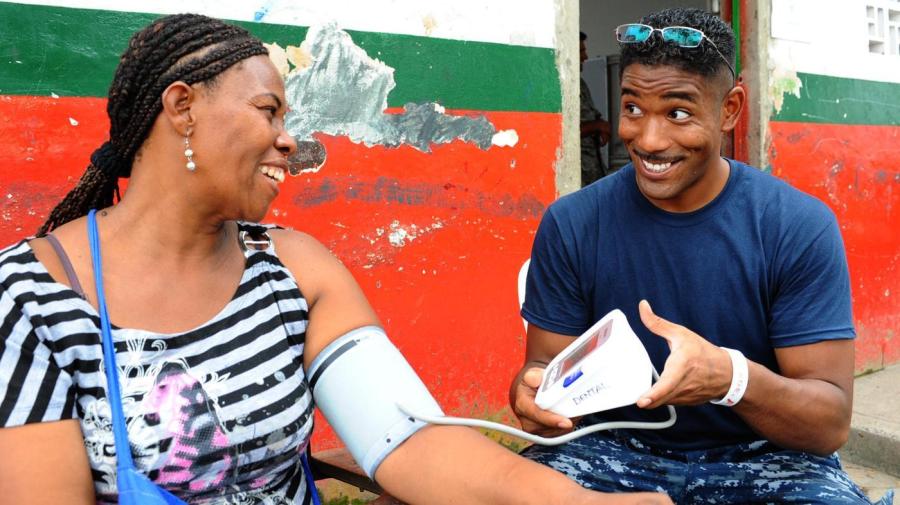What Are the Symptoms of High Blood Pressure?

The majority of those afflicted by high blood pressure, which is also called hypertension, experience no symptoms at all, even when blood pressure reaches dangerous levels. Those who do experience symptoms may have chest pain, fatigue, confusion, irregular heartbeat, difficulty breathing, dizzy spells, dull headaches and nosebleeds. Pounding in the ears, neck or chest may also occur, according to WebMD.
In some people, by the time symptoms occur, blood pressure may have reached a life-threatening stage. Since blood pressure can be dangerously high without any symptoms being exhibited, WebMD notes that regular checkups that include blood pressure screenings are important. Nearly one-third of people who have hypertension do not know they have it. Untreated high blood pressure can lead to several serious diseases, including kidney failure, heart disease and stroke, and it can cause eye problems.
When blood pressure reaches a certain level, a hypertensive crisis occurs. Systolic pressure of 180 or more or diastolic pressure of 110 or more may cause the symptoms of hypertensive crisis and require emergency medical treatment. Mayo Clinic notes that symptoms of hypertensive crisis include severe anxiety and headache, shortness of breath and nosebleeds, and a hypertensive crisis can lead to a heart attack.





